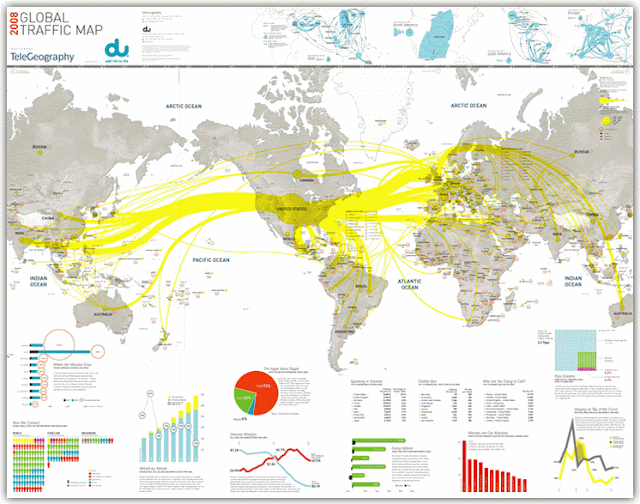On Airports
Airports are on the receiving end of endless ridicule, much of which is, in my eyes, unmerited. Given the miraculous nature of hurtling through the sky in a metal tube along with a few hundred other passengers, it would seem fair to accept the groggy line of passengers stumbling through security, to stomach a subpar caprese or stale croissant, and to cede armrest territory to the dozing college student to your left. Indeed, against the wonder of air travel, complaints like these shrink to nothingness. It is unfortunate when delays push back vacation plans or, worse yet, preclude attendance at weddings, funerals, and the like, but I believe a tendency to emphasize and report on failure leads to a distorted perception of the general positive functioning of airports.
 |
| Graphic courtesy of Wikimedia Commons |
More legitimate are the critiques of air travel as an exclusive facet of society, an intrinsic global good, or as a simple mechanism for the relocation from the familiar to the “exotic.” In the age of combating global warming, the irony of some situations is glaring: titans of industry and leading minds flown into conferences to speak on the effects of air pollution; metal straws touted adjacent to fields of exhaust-dumping jets; and ethically sourced, eco-friendly hand towelettes passed out in machines that guzzle billions of gallons of fuel worldwide each year. Air travel is also not available to all citizens of the world, not even to some of those who devote their labor to the continual flow of airports themselves. And, the ecotourism industry may very well be self-defeating in nature, with the ecological strain and environmental pollution of travellers ultimately eroding the very destinations to which they flock.
 |
| Graphic courtesy of Wikimedia Commons |
And yet, the sheer value of airports—in bringing together peoples, in facilitating cultural exchange, in acting as hubs for transit and exploration—is inestimable. The physical act of flight itself—sending us wingless animals through the clouds in a scaled-up soda can—defies the path evolution set before us. The boredom that besets travellers of the skies reveals the normalized state of careening six miles above earthen security. And the creation of a window, a worm-hole, a bridge between two points on land that would have been insurmountably divorced just a century ago is the true magic of flight. In dissociation, in process, and in effect, air travel is transcendence. The airport, as the foundation for this phenomenon, is a temple of disruption, what Alain de Botton describes as the “single place that neatly captures the gamut of themes running through our civilisation—from our faith in technology to our destruction of nature, from our interconnectedness to our romanticising of travel.” As I walked through LAX this morning, all this seemed true, and more. The confluence of peoples, the offering of diverse food, the promise of new experiences forges a place unlike any other: the airport.



Comments
Post a Comment